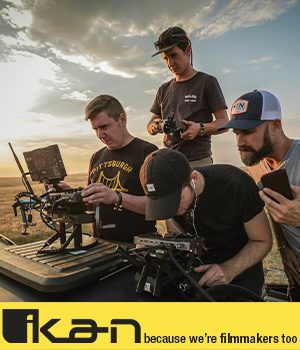- Forum
- Photography and Camera Forum
- Equipment Research, Buying and Using
- Digital Cameras
- Definitive Beginners Guide For Choosing A Camera For Portrait & Lifestyle Photography
Definitive Beginners Guide For Choosing A Camera For Portrait & Lifestyle Photography
-
 Topic Author
Topic Author
- lovefamilyphoto
- Newbie
- Follower: 1
- Posts: 3
-
Points:
0
Post #253345
And it seems like people who ask the question have to browse around to find a tip here and an answer there. So I decided to put together a cohesive and comprehensive guide in one place; I'm hoping it will help people who are new to photography take great photos, save money on their purchase and save them time browsing around the internet for more answers.
Obviously, I hope other photographers add their own input and expand on my points.
First of all, let me share a few things about me to give you some context.
I am a professional family photographer and I particularly specialise in outdoor lifestyle-type shoots. It means that my opinion will have a slant towards gear which is useful for taking photos of people and lifestyle situations.
This means that I don't know much about landscape photography, wedding photography and taking photos of plants or wildlife. So if you plan to engage in those types of photography as well I suggest you also check out perspectives of photographers who specialise in those areas before you buy.
So, here we go.
I think the first and most important thing to ask yourself first is this:
WHAT ARE YOU GOING TO USE THE CAMERA FOR?
Cameras are very specialised pieces of equipment, and what's useful for one person may not necessarily be useful for another. It seems that there are 2 types of people who ask the question about camera choice:
1. The Photography Enthusiast: "I Love Photography And Want To Learn While Taking Photos Of My Friends And Family"
2. The Quality Seeker: "I'm Sick Of Crappy Photos And Want A Camera Which Will Take Better Photos Of My Friends And Family When I Go Places, Travel And Go Out."
Both types want great photos, but only the former type has significant interest in developing his photographic skills, doing a photography course, and discovering the possibilities which present themselves in photo editing software.
The former is likely to delve with camera settings. The latter is likely to leave things in AUTO mode.
I think also the Photography Enthusiast can often lose interest in learning photography and become a Quality Seeker. Neither type, of course, is better or worse. But each has different focus and that will guide their choice of camera.
Here's the first thing to consider. Camera manufacturers will try to sell you on picture quality. I think it's a false feature because even the cheapest cameras from major brands these days offer pretty spectacular image quality. Don't get too caught up in that.
The second thing to mention is resolution. Resolution is often used to imply that the higher the resolution, the higher picture quality. That is a myth. A more accurate way of thinking about it is that the higher the resolution, the bigger the image. And all cameras today create images which are big enough for all your needs (unless you're planning to print your images on billboards), so don't worry about that at all.
A SIDE NOTE ABOUT RESOLUTION: There's arguably a reverse trend in resolution at the moment - after chasing cameras with higher and higher resolutions, professional photographers are demanding faster processing speeds, less grainy photos and less storage space, all of which are eaten away at by resolution. New flagship cameras from Canon and Nikon have tamed the resolution growth and opted for speed and noiselessness instead.
CAMERA BODY CHOICE FOR THE PHOTOGRAPHY ENTHUSIAST.
You will grow as a photographer. But you don't want to outgrow your camera, so you need something which will present you with new possibilities and features to explore as you skill set expands.
This means your best bet is a DSLR. People get caught up in the Nikon vs Canon debate just like they do with Holden vs Ford, but a the end of the day whatever advantage one maker may offer is insignificant compared with the difference YOU will make when you master using the camera.
Some people spend months researching all the technical nuances, comparing specifications, etc. If you skip that step and invest all that time on a forum like this one actually learning how to use it, taking photos and getting critique, you'll end up with far better photos than you would if you found your "perfect" camera. Whatever that might mean.
It's a cliche, but one worth repeating - at the end of the day, it's not the camera which makes the photo. You do. In the context of that, the question of brand choice and even the camera body is a fairly insignificant one.
If you're just starting to learn about photography, a Canon 600D or Nikon 5100 are about $500 and will be great for you.
You can spend a little bit more or a little bit less and get a model that's either one up or one down in the range.
Most of the features will be the same; the main difference you'll notice will be the build quality. Cheaper cameras tend to feel more plasticky and toy-like; I personally like things that feel good in the hand so I'd spend the money - but note that it's an aesthetic/ergonomic choice and has nothing to do with the actual photography.
Your next choice is that of lens.
LENS CHOICE FOR THE PHOTOGRAPHY ENTHUSIAST.
A lens is an amazing device. And the first thing to get is that there are no good or bad lenses. But each lens is a set of engineering sacrifices, so each lens is built to be "good at" something and "pretty bad at" everything else. The difference is subtle, but important. It helps you choose a lens with strengths that are important to YOU.
If lens design had a motto, this would be it: you can't be good at everything.
The lens which most camera kits come bundled with try to bend that rule and so they try to be reasonably OK at everything, including price. The result is that they're not particularly good at anything. The lenses I'm talking about are cheap-ish (about $200) zooms with f/stops in the range of 3.5-5.6.
They don't have the best optics, but the worst thing is that their 3.5-5.6 aperture makes them not very usable in low light conditions. Which means you need to resort to on-camera flash and ruin your photos or find yourself unable to grab a fast enough shutter speed and you end up with blurry photos.
What's the solution?
A prime lens. They have much, much, much wider apertures, which means you can just about take photos with candle-light in a dark room. And their optics produce much sharper images. And they're cheap. Look for Canon 35mm f/2 and Nikon's 35mm f/1.8. Canon is slightly more expensive in this case.
What's the catch, then? There as to be one, right? And there is - prime lenses don't zoom. They're able to offer you all these advantages because they're not burdened with heavy and expensive zooming mechanisms.
Which is a limitation. But any limitation can also be viewed as a challenge and an opportunity to grow. And if you're interested in improving as a photography this is a pretty good challenge to have on your hands.
Zooming can be still done, after all, with your feet And all this moving around and judging perspectives and distances around your subjects will help you develop "an eye" a lot quicker than if you were zooming back and forth.
You'll probably find that you struggle more at first to produce a great shot - you might even declare that you hate the prime lens - but there'll be a point where the penny drops and you'll never look back.
Why am I recommending a 35mm lens?
Because when you attach it to a cropped sensor camera like the ones I mentioned above, the camera will "see" the world in a way that's very similar to how you see the world through your eyes.
Generally, with this setup you'll be able to take photos of scenes with people in them and close-ups of people (portraits). If you have money left over, get yourself a 50mm 1.8 (about $150-$200) from both Nikon and Canon, which will help you explore portrait territory further.
To be continued in Part II...
CAMERA CHOICES FOR "THE QUALITY SEEKER"
LENS CHOICES FOR "THE QUALITY SEEKERS"
Family Photography Sydney | I Love My Family Photography
-

- Rob pix4u2
- Photo Guru
- Nikon N90s & FE film & D90 and D90 digital bodies
- Followers: 196
- Posts: 4204
-
Points:
30
Post #253433
Remember to engage brain before putting mouth in gear
Rob Huelsman Sr.
My Facebook www.facebook.com/ImaginACTIONPhotography
-
 Topic Author
Topic Author
- lovefamilyphoto
- Newbie
- Follower: 1
- Posts: 3
-
Points:
0
Post #257903
Steven
Family Photography Sydney | I Love My Family Photography
- Forum
- Photography and Camera Forum
- Equipment Research, Buying and Using
- Digital Cameras
- Definitive Beginners Guide For Choosing A Camera For Portrait & Lifestyle Photography
Latest Reviews
The Canon EOS R100 is an entry-level mirrorless camera introduced in 2023. But just because it’s an entry-level camera doesn’t mean it’s a bare-bones camera. Find out why in this review!
Nikon’s retro-looking Nikon Zfc is anything but retro. Under its classic body is a host of features and amenities that make it a worthwhile compact mirrorless camera for 2024.
The Canon EOS R50 is one of the newest R-system cameras from Canon. Is it worth your money? Find out all the details you need to know in this comprehensive review.
The Sony FE 70-200mm f/2.8 GM OSS II is Sony’s flagship mirrorless zoom lens. As such, it’s loaded with features and has a top-shelf build quality that makes it a top pick!
Latest Articles
The Canon EOS R100 is an entry-level mirrorless camera introduced in 2023. But just because it’s an entry-level camera doesn’t mean it’s a bare-bones camera. Find out why in this review!
Are you ready to upgrade your camera? Before buying new, you might consider the value of purchasing used gear to save money.
The Olympus OM-D E-M10 Mark IV is a micro four thirds camera released in 2020. It’s an entry-level system along with the OM-D E-M5 Mark III. Use this guide to determine which one is best for you!
Blue hour photography might not be as well known as golden hour photography, but it is every bit as good a time to create epic images of landscapes. Learn how in this quick tutorial!
Nikon’s retro-looking Nikon Zfc is anything but retro. Under its classic body is a host of features and amenities that make it a worthwhile compact mirrorless camera for 2024.
Moving from taking snapshots of your dog to creating beautiful images doesn’t have to be that difficult! Use the tips outlined in this dog photography guide, and you’ll get better results in no time.
Acrylic print photos are a beautiful way to display your favorite images. But they don’t come without some questions. Get all the answers you need about this medium in this guide!
Where do you get your landscape photography inspiration? Is it from masters like Ansel Adams? Or perhaps viewing art from other genres? We’ve got these and a few other sources for you to check out!













